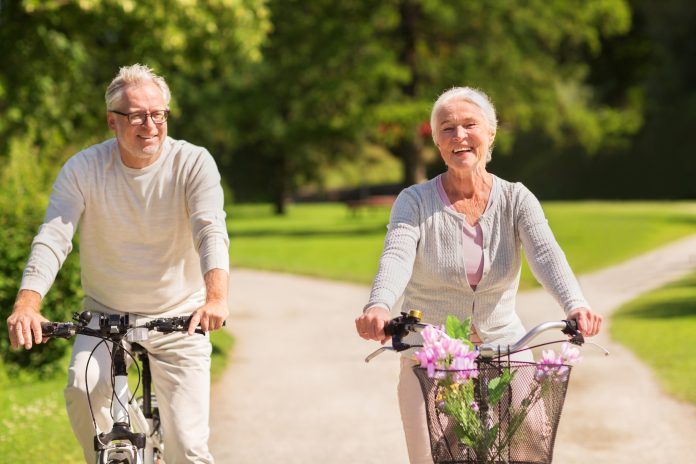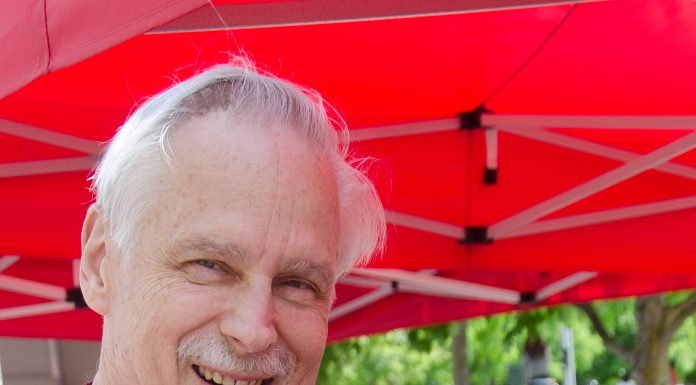Growing old does not mean that you’ve got to be bored out of your mind taking long naps, watching daytime soap operas and waiting for the next bingo night at the senior center. You don’t have to live a passive life. That’s where the term Active Aging comes in.
The World Health Organization (WHO) estimates that by 2050, 1 in every 5 persons will be over the age of 60. This change in demographics will have a significant impact on economics, but more than that, WHO is concerned about the current state of senior care, which fails to take into account the seniors’ need to have a productive and purposeful life. That’s why WHO has come up with the active aging initiative.
Simply put, active aging means: being able to do what we love for as long as possible.
Lack of purpose and loneliness are just as horrible to deal with as age related diseases and, in fact, passivity can hasten the deterioration of health as we get older. Deciding to age actively means grabbing the helm of your ship with both hands and charting a purposeful course, as you sail into the sunset.
Here are some key areas of active aging:
Physical Activity
The most obvious way to age actively is to remain physically active; it is also the most important. Countless studies have shown that physical activity helps to reduce chances of age related diseases and improves the overall quality of life, even for those who never exercised in their life before the age of 60. It keeps your joints flexible, your muscles strong, your heart and other organs healthy, and your brain acute. Being physically active also reduces the chances of falling and the related injuries.
I use the term physical activity instead of “exercise” or “workout” deliberately because most seniors would never imagine themselves “hitting the gym” (in the parlance of the young). Physical activity literally means any kind of activity that includes physical movements.
Here is a list of some great activities you can do to stay active:
- Walking: A wonderful way to stay active while exploring nature, or even your own city.
- Cycling: If it’s too far to walk, why not cycle there?
- Swimming: No, I’m not suggesting to go on a swimming tour of the sea, but maybe a few laps of the swimming pool with your friends.
- Sports: Tennis is great, bowling is okay, darts maybe pushing it and bridge is definitely not a sport.
- Dancing: The most fun way to stay active!
- Yoga, Tai Chi, Qi Gong: These three are very different from each other but I’ve put them together because all of them help you to not just strengthen muscles and increase flexibility, but also help in improving balance, increasing energy and keeping the mind sharp. All the other physical activities are great too but if you really want to maximize what you get from exercise then go for these practices that have been perfected over thousands of years in the East.
Mental Activity
Just as your body needs to move in order to stay healthy, so does your mind. If you do regular physical activity, you automatically do half the work needed to stay mentally healthy.
Physical activity pumps blood to your brain, which carries fresh oxygen that’s vital for the brain cells and also flushes out the toxins and waste products that accumulate in the brain tissue. This is important because the accumulation of some of these waste products is thought to be the cause of brain diseases such as Alzheimer’s and dementia.
Much of the other half of mental health can be achieved through mental activity. (FYI, the remaining is dependent on diet.) Here are some ways to stay mentally active:
- Learning: One of the best ways to keep your mind active is to learn a new skill or a subject that you are interested in.
- Brain Games: Solving puzzles, brain teasers, riddles etc. can all help keep your brain from getting rusty.
- Meditation: Meditation might be about silencing your brain but it requires a lot of mental effort.
- Reading: Don’t wait for the movie to come out, just read the book and use your own imagination to visualize the characters. It will keep your mind active.
Gratitude
As you enter your senior years, you might have regrets about things you should have done or things you shouldn’t have done; you might even feel resentful for not getting what you think you deserved. Resentment and regrets are the norm because life isn’t a fairytale, but dwelling on these feelings can make the remainder of your life harder than it has to be.
Gratitude means thankful appreciation of what you have and peaceful acceptance of what you don’t. It’s not just a spiritual concept either; researchers have found that seniors who reported to be more grateful, had fewer health problems. Thinking about things that you are grateful for and showing gratitude to others, can truly make you happy.
A great way to show gratitude is to give back to the community and share the wisdom you’ve gathered through your life experience. This could mean volunteering at the local community center or teaching your skills to youngsters. With the internet, you can share your wisdom with hundreds of thousands of people around the world. The added benefit being that you stay active and have a more purposeful life. It also helps you maintain a large social circle so that you never have to suffer from loneliness.
Working
If you want a more serious purpose after retirement, why not continue working? There are many opportunities for seniors to find work that’s well suited to their needs. People often think of work as a burden; something they have to do, but as a retiree you can choose to work, not for the money, but for the enjoyment of living an active and purposeful life.
This allows you to be more selective in the kind of work you do. Maybe you had a passion that you regret not pursuing? Well this is the time to do that. It’s never too late to write a book or learn to paint. If you liked your job, try to find out if they’d hire you as a part-time consultant or a trainer for new employees. After all, you have years of experience in your field. Another option could be volunteering with a charity that’s close to your heart.
Just because you are at the retirement age, doesn’t mean you have to stop working. Work will give you the purpose that every human being needs and help you to stay active as you age.
Conclusion
WHO hopes that active aging will help billions of people stay healthy and continue to contribute to society well into their golden years. Remember the term active aging as you decide how to live the remainder of your life. Who knows, it might even be the best part of your life.
























